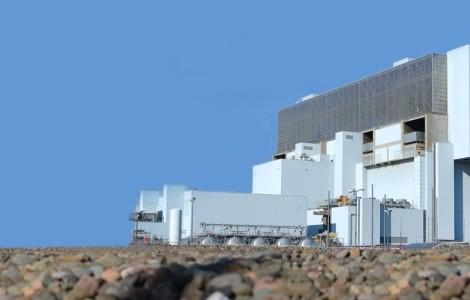EDF confirms boost to UK’s clean power targets with nuclear life extensions
A decision taken (3 December) by EDF will see the lifetimes of all four generating Advanced Gas Cooled Reactor stations extended.
Heysham 2 (Lancashire) and Torness (East Lothian) will keep producing zero-carbon electricity for an additional two years to March 2030 while Heysham 1 (Lancashire) and Hartlepool (Teesside) will produce power until March 2027, an extension of one year.
As well as bolstering energy security, the decision supports plans for the rapid expansion of renewables by helping to maintain grid stability. It also helps limit the UK’s dependence on imported gas, with a further 45TWh of output displacing around 9.3bn cubic metres of gas over the extended lifetimes. That is the equivalent of 62 LNG tankers, more than 20% of last year’s LNG imports.
Mark Hartley, Managing Director of EDF’s Nuclear Operations business, said: “Today’s decision is testament to EDF’s ongoing investment in the UK’s nuclear fleet and the hard work of the employees and suppliers supporting these sites.
“When EDF acquired these stations in 2009 they were all due to end generation by early 2023 which would have left the UK with just one generating nuclear station at Sizewell B. Careful stewardship and around £8bn of investment since 2009 has seen several life extensions for these stations and much higher output than was predicted.”
Secretary of State for Energy and Net Zero, Ed Miliband, said: “EDF’s decision to keep four nuclear plants online is a strong endorsement of our clean power mission.
“These extensions are a major win for our energy independence – powering millions of homes for longer while supporting 3,000 good jobs across Lancashire, Teesside, and East Lothian. We can’t achieve clean power by 2030 without nuclear, which provides an all-important steady supply of homegrown clean energy.
“This will come alongside our backing for new nuclear including supporting the completion of Hinkley Point C, confirming £2.7 billion for Sizewell C, and pressing on with contract negotiations for our small modular reactor competition.”
The decision, taken after a rigorous review process over the past seven months, follows the recent publication of the Clean Power 2030 report by the energy system operator, NESO, which outlined the importance of AGR life extension in reaching the UK Government’s clean power goals.
NESO Chief Executive, Fintan Slye, said: “I welcome today’s announcement from EDF on their plant life extensions. NESO’s advice to the UK Government on delivering clean power by 2030, and our Future Energy Scenarios, show the important role that nuclear power will play in the electricity system to 2030 and out to 2050.”
EDF will invest a further £1.3 billion in the five generating stations over the next three years (2025-27) on top of the £8 billion already invested since 2009 to safely extend operating lifetimes. So far, the nuclear fleet has generated over 240TWh more electricity than expected back then, enough zero carbon electricity to power every UK home for two years.
As well as helping Britain achieve its clean power targets this decision also supports the jobs of more than 3,000 staff and contractors working at the sites, as well as hundreds of companies in the supply chain.
Keeping the existing fleet running for longer will help preserve valuable skills that will be critical as the UK seeks to re-build its nuclear capability.
In 2024 EDF has hired almost 900 people across its nuclear businesses, including more than 250 graduates, apprentices and industrial placements.
EDF is committed to continuing this investment in early careers pipelines working with further and higher education providers, the National College for Nuclear and other industry training bodies.







